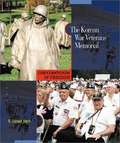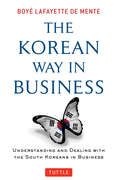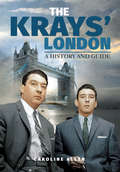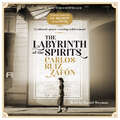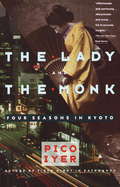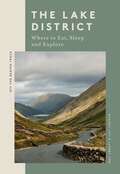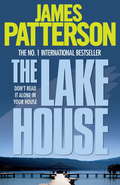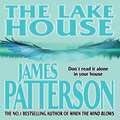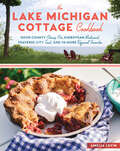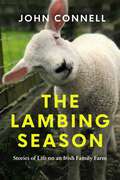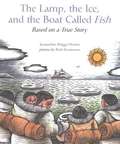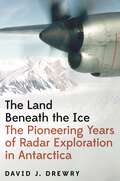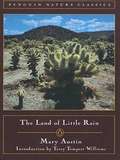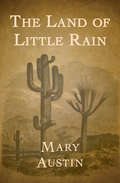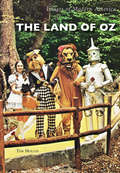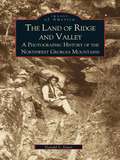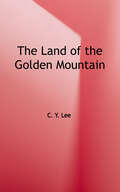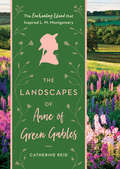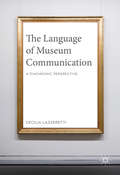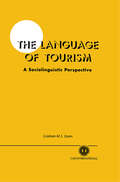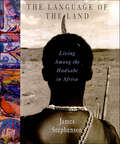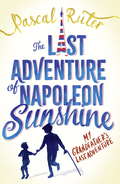- Table View
- List View
The Korean War Veterans Memorial (Cornerstones of Freedom, 2nd Series)
by R. Conrad SteinThe Korean War is called the "Forgotten War." The conflict was largely ignored by the American public while it raged. Even today the war is covered by only a few paragraphs, rather than a chapter, in the history books. But those who fought in Korea will never forget the terror and the misery they suffered there. For the rest of their lives they will have painful memories of friends who were killed in that faraway land.
The Korean Way in Business
by Boyé Lafayette De MenteLearn the ins and outs of conducting business in South KoreaSouth Korean companies and technology have suddenly conquered the world. Samsung, Hyundai and LG are industry leaders and the global brands. <P><P>Korean culture in the form of K-Pop music videos and "Korean Wave" films and TV dramas are watched everywhere from Tel Aviv to Singapore to Rio. Korean gourmet food trucks ply the streets of New York and LA, and kimchi has found a place on the shelves of well-stocked supermarkets around the world.With just a fraction of Japan's land area, less than half its population, and no natural resources-how have Korean companies managed to conquer the world in such a short period of time? What is the "secret sauce" of Korean business practices and companies that makes them so successful?To find out, readers need more than statistics and company profiles. Learning the basics about Korean culture, about Korean social etiquette and Korean business culture, will enable you to understand for the first time how Koreans think and why they work so effectively to achieve their goals. This understanding will enhance your own effectiveness in doing business with Koreans, or in competing with them-whether in Korea or elsewhere.
The Krays' London: A History and Guide
by Caroline AllenA true crime travel guide to the haunts and hangouts of the most notorious gangsters of London&’s East End. There are many conflicting stories about who Ronnie and Reggie Kray were. Films depicting their lives have made the public vilify them, adore them and even admire them. This guidebook will dig a little deeper into the places they spent their time. Many of the places are renowned as the stomping grounds of the devious duo, but there are one or two exclusives that are not yet covered anywhere else, including the untold story of their lifelong hairdresser. Chapter by chapter, a map of their lives will reveal itself, making this the perfect read for anybody around the world interested in London&’s gangster scene. &“I remember going home from a cinema visit to London in the early 1960s with police sirens all over the place as we went through the East End. I remember the newspaper reports of the time, and wondering how the police could allow such people to control the East End to such an extent, and to apparently countenance the horrors this evil gang inflicted on their own and their enemies. It was a horrendous time to be alive in the East End of London, and Caroline&’s superb book brings it all back to life.&” —Books Monthly
The Krays' London: A History and Guide
by Caroline AllenA true crime travel guide to the haunts and hangouts of the most notorious gangsters of London&’s East End. There are many conflicting stories about who Ronnie and Reggie Kray were. Films depicting their lives have made the public vilify them, adore them and even admire them. This guidebook will dig a little deeper into the places they spent their time. Many of the places are renowned as the stomping grounds of the devious duo, but there are one or two exclusives that are not yet covered anywhere else, including the untold story of their lifelong hairdresser. Chapter by chapter, a map of their lives will reveal itself, making this the perfect read for anybody around the world interested in London&’s gangster scene. &“I remember going home from a cinema visit to London in the early 1960s with police sirens all over the place as we went through the East End. I remember the newspaper reports of the time, and wondering how the police could allow such people to control the East End to such an extent, and to apparently countenance the horrors this evil gang inflicted on their own and their enemies. It was a horrendous time to be alive in the East End of London, and Caroline&’s superb book brings it all back to life.&” —Books Monthly
The Labyrinth of the Spirits: From the bestselling author of The Shadow of the Wind
by Carlos Ruiz ZafonAs a child, Daniel Sempere discovered among the passageways of the Cemetery of Forgotten Books an extraordinary novel that would change the course of his life. Now a young man in the Barcelona of the late 1950s, Daniel runs the Sempere & Sons bookshop and enjoys a seemingly fulfilling life with his loving wife and son. Yet the mystery surrounding the death of his mother continues to plague his soul despite the moving efforts of his wife Bea and his faithful friend Fermín to save him.Just when Daniel believes he is close to solving this enigma, a conspiracy more sinister than he could have imagined spreads its tentacles from the hellish regime. That is when Alicia Gris appears, a soul born out of the nightmare of the war. She is the one who will lead Daniel to the edge of the abyss and reveal the secret history of his family, although at a terrifying price.The Labyrinth of the Spirits is an electrifying tale of passion, intrigue and adventure. Within its haunting pages Carlos Ruiz Zafón masterfully weaves together plots and subplots in an intricate and intensely imagined homage to books, the art of storytelling and that magical bridge between literature and our lives.Read by Daniel Weyman(p) Orion Publishing Group 2018
The Lady In The Palazzo: An Umbrian Love Story
by Marlena De BlasiMarlena di Blasi seduced readers to fall in love with Venice, then Tuscany, with her popular and critically acclaimed books A Thousand Days in Venice and A Thousand Days in Tuscany. Now she takes readers on a journey into the heart of Orvieto, an ancient city in the less-trodden region of Umbria. Rich with history and a vivid sense of place, her tale is by turns romantic and sensual, joyous and celebratory, as she and her husband search for a home in this city on a hill--finding one that turns out to be the former ballroom of a dilapidated sixteenth-century palazzo. Along the way, de Blasi befriends an array of colorful characters, including cooks and counts and shepherds and a lone violinist, cooking her way into the hearts of her Umbrian neighbors. Brimming with life and kissed by romance, The Lady in the Palazzo perfectly captures the essence of a singular place and offers up a feast--and the recipes to prepare it!--for readers of all stripes.
The Lady and the Monk: Four Seasons in Kyoto
by Pico IyerWhen Pico Iyer decided to go to Kyoto and live in a monastery, he did so to learn about Zen Buddhism from the inside, to get to know Kyoto, one of the loveliest old cities in the world, and to find out something about Japanese culture today -- not the world of businessmen and production lines, but the traditional world of changing seasons and the silence of temples, of the images woven through literature, of the lunar Japan that still lives on behind the rising sun of geopolitical power.All this he did. And then he met Sachiko.Vivacious, attractive, thoroughly educated, speaking English enthusiastically if eccentrically, the wife of a Japanese "salaryman" who seldom left the office before 10 P.M., Sachiko was as conversant with tea ceremony and classical Japanese literature as with rock music, Goethe, and Vivaldi. With the lightness of touch that made Video Night in Kathmandu so captivating, Pico Iyer fashions from their relationship a marvelously ironic yet heartfelt book that is at once a portrait of cross-cultural infatuation -- and misunderstanding -- and a delightfully fresh way of seeing both the old Japan and the very new.From the Trade Paperback edition.
The Lake District: Where to Eat, Sleep and Explore (Off the Beaten Track)
by Meg AbbottOff the Beaten Track: The Lake District is a thoughtfully curated guide revealing the hidden joys of the Lakes, including where to eat well, explore and rest along the way.As a UNESCO World Heritage Site, the Lake District certainly has a lot going for it – misty peaks and glassy waters, plunging valleys, ancient paths and wide-open skies; with bustling pubs, snoozy villages and market towns in the shadows of mountains. It is a place of light and drama, sound and serenity. This idyllic place leaves you feeling peaceful, invigorated and inspired.Each chapter lays out a hand-picked selection of places to sample local flavours and find a home away from home in this beautiful region, as well as inspiration for activities that embrace the seasons. Whether you’re looking for breathtaking views from a day spent walking, quiet waters for wild swimming, the perfect pub for a post-hike pint or cosy cafés and independent bookshops, there’s something for everyone here.Off the Beaten Track is a series of handy books celebrating the UK’s most peaceful places to escape, explore and unplug. From rugged coastlines to high peaks and sleepy villages, we explore the most beautiful local spots to stay, eat and play. These books are here to help you reconnect with the land and discover parts of it you never knew existed. They are for nature lovers, city dwellers craving wide-open spaces, and world travellers in search of their next adventure.
The Lake House
by James PattersonFrannie O'Neill's life turned upside down when she and FBI maverick Kit Brennan rescued six incredible winged children from the school that created them. Now the young flock wants to go back to the couple, and Frannie and Kit are suing for custody. But when the case involves the most extraordinary creatures ever to land on this earth, someone will ensure there is no happy ending. Only Max, the most remarkable of the children, knows that another, terrifying biological experiment is taking place in the labs of a brilliant but evil surgeon, Dr Ethan Kane. But to complete his experiment he needs the ultimate prize - Max herself. And as the children dream of returning to the happy safety of the lake house, where for a few precious months they flew free, Kane moves ever closer...
The Lake House
by James PattersonFrannie O'Neill's life turned upside down when she and FBI maverick Kit Brennan rescued six incredible winged children from the school that created them. Now the young flock wants to go back to the couple, and Frannie and Kit are suing for custody. But when the case involves the most extraordinary creatures ever to land on this earth, someone will ensure there is no happy ending. Only Max, the most remarkable of the children, knows that another, terrifying biological experiment is taking place in the labs of a brilliant but evil surgeon, Dr Ethan Kane. But to complete his experiment he needs the ultimate prize - Max herself. And as the children dream of returning to the happy safety of the lake house, where for a few precious months they flew free, Kane moves ever closer...(P)2012 Headline Digital
The Lake Michigan Cottage Cookbook: Door County Cherry Pie, Sheboygan Bratwurst, Traverse City Trout, and 115 More Regional Favorites
by Amelia LevinThis collection of 118 recipes captures the evocative food experiences of the Lake Michigan region, an ultimate vacation destination with hundreds of miles of shoreline and rich food traditions reflecting the bounty of the area’s farms and the lake’s daily catch. Recipes include Helen Suchy’s Apple Cake from Door County, Homemade Sheboygan-Style Bratwurst, Chicago’s HBFC Original Fried Chicken Sandwich, Beach House Cheesy Potatoes from Northwest Indiana, and The Cook’s House Crispy Skinned Lake Trout from Traverse City. Delightful photographs of cottage life and classic destinations, along with profiles of favorite food purveyors, bring the lakeshore’s flavors and charm to you year-round, wherever you are. This publication conforms to the EPUB Accessibility specification at WCAG 2.0 Level AA.
The Lambing Season: Stories of Life on an Irish Family Farm
by John ConnellA hymn to the rituals of farming life from the bestselling Irish author of The Farmer's Son.For John Connell, the lambing season on his County Longford farm begins in the autumn. In the sheep shed, he surveys the dozen females in his care and contemplates the work ahead as the season slowly turns to winter, then spring. The twelve sheep have come into his life at just the right moment. After years of hard work, John felt a deep tiredness creeping up on him, a sadness that he couldn't shrug off. Having always sought spiritual guidance, he comes to realise that, in addition to the soothing words of literature and philosophy, perhaps the way ahead involves this simple flock of sheep. In the hard work of livestock rearing, in the long nights in the shed helping the sheep to lamb, he can reflect on what life truly means. Like the flock that he shepherds, this book is both simple and profound, a meditation on the rituals of farming life and a primer on the lessons that nature can teach us. As spring returns and the sheep and their lambs are released into the fields, skipping with joy, John recalls the words of Henry David Thoreau, reminding us to "live in each season as it passes."
The Lamp, the Ice, and the Boat Called Fish
by Jacqueline Briggs MartinIn 1913, a boat named Karluk, Aleutian for "fish,” part of the Canadian Arctic Expedition, became stuck in the Arctic ice. On board were a captain and crew, scientists and explorers, a cat, forty sled dogs, Inupiaq hunters, and an Inupiaq family with two small girls. Even with the Inupiaq and their skills of hunting and sewing, even with the family’s care and wisdom, even with the compassion and courage of their captain, odds for survival in the cold, dark Arctic seem against the passengers of the Karluk. Here is a riveting, unforgettable story, poetically told and exquisitely illustrated with rounded scratchboard art that captures the strength and grace of Inupiaq culture. Details of centuries-old crafts and skills - of sewing boots from caribou legs and ugruk skin, of quickly cutting snow houses, of wearing wooden goggles to ward off snowblindness - will enrich modern imaginations. And by the story’s end, listeners will know something of the way of life in the high north, something of the song of the place, the wide sky, the sound of the wind, the ptarmigan.
The Land Beneath the Ice: The Pioneering Years of Radar Exploration in Antarctica
by David J. DrewryA wondrous story of scientific endeavor—probing the great ice sheets of AntarcticaFrom the moment explorers set foot on the ice of Antarctica in the early nineteenth century, they desired to learn what lay beneath. David J. Drewry provides an insider’s account of the ambitious and often hazardous radar mapping expeditions that he and fellow glaciologists undertook during the height of the Cold War, when concerns about global climate change were first emerging and scientists were finally able to peer into the Antarctic ice and take its measure.In this panoramic book, Drewry charts the history and breakthrough science of radio-echo sounding, a revolutionary technique that has enabled researchers to measure the thickness and properties of ice continuously from the air—transforming our understanding of the world’s great ice sheets. To those involved in this epic fieldwork, it was evident that our planet is rapidly changing, and its future depends on the stability and behavior of these colossal ice masses. Drewry describes how bad weather, downed aircraft, and human frailty disrupt the most meticulously laid plans, and how success, built on remarkable international cooperation, can spawn institutional rivalries.The Land Beneath the Ice captures the excitement and innovative spirit of a pioneering era in Antarctic geophysical exploration, recounting its perils and scientific challenges, and showing how its discoveries are helping us to tackle environmental challenges of global significance.
The Land of Little Rain
by Mary Austin Terry Tempest WilliamsI confess to a great liking for the Indian fashion of name-giving: every man known by that phrase which best expresses him to whoso names him. Thus he may be Mighty-Hunter, or Man-Afraid-of-a-Bear, accor-ding as he is called by friend or enemy, and Scar-Face to those who knew him by the eye's grasp only. No other fashion, I think, sets so well with the various natures that inhabit in us, and if you agree with me you will understand why so few names are written here as they appear in the geography. For if I love a lake known by the name of the man who discovered it, which endears itself by reason of the close-locked pines it nourishes about its borders, you may look in my account to find it so described. But if the Indians have been there before me, you shall have their name, which is always beautifully fit and does not originate in the poor human desire for perpetuity. Nevertheless there are certain peaks, cañons, and clear meadow spaces which are above all compassing of words, and have a certain fame as of the nobly great to whom we give no familiar names. Guided by these you may reach my country and find or not find, according as it lieth in you, much that is set down here. And more. The earth is no wanton to give up all her best to every comer, but keeps a sweet, separate intimacy for each.
The Land of Little Rain (Zia Book Ser.)
by Mary AustinA stirring tribute to the unique beauty of theAmerican Southwest In the region stretching from the High Sierras south of Yosemite to the Mojave Desert, water is scarce and empty riverbeds hint at a lush landscape that has long since vanished. But the desert is far from lifeless. For those who know where to look, the &“land of little rain&” is awash in wonders. In this exquisite meditation on the people, flora, and fauna of the American desert, Mary Austin introduces readers to the secret treasures of the landscape she loved above all others. Her lyrical essays profoundly influenced the work of nature writers and conservationists, among them Edward Abbey and Terry Tempest Williams, and have inspired generations of readers to visit some of the country&’s most stunning national parks, including Death Valley and Joshua Tree. This ebook has been professionally proofread to ensure accuracy and readability on all devices.
The Land of Oz (Images of Modern America)
by Tim HollisIn 1966, North Carolina tourism moguls Grover, Harry, and Spencer Robbins began exploring ways to utilize their new ski facilities atop Beech Mountain during the summer. They brought in their associate Jack Pentes to come up with an idea. As a long-time fan of The Wizard of Oz, Pentes planned and developed the Land of Oz theme park, opening in June 1970. The park did not resemble the famous 1939 MGM movie or the Oz as depicted in L. Frank Baum's book. Instead, Pentes interpreted his own vision of Oz, with a comical Wicked Witch and a wizard who did not turn out to be a fake. The Land of Oz closed after its 1980 operating season and was left to deteriorate. Since 1990, however, its remnants have been secured and restored. The property is now available for special events, and a giant Oz celebration takes place each autumn.
The Land of Ridge and Valley: A Photographic History of the Northwest Georgia Mountains
by Donald S. DavisThe mountains of Northwest Georgia encapsulate a lifetime of rich and varied stories, both of the land and its own natural bounty and the countless people who have drawn sustenance from its resources. The historic photographs within these pages depict all facets of life in the region, and recall the tumultuous changes that came along with the advent of mining, the demise of the Native American community, and the appearance of new industries. Today, as technology paves the way for a bright future, the signs of life in an earlier era are scattered throughout this mountainous region--abandoned homesteads and forlorn mining sites evoke memories of a past when the first mine prospectors dug deep into the mountains, uncovering thousands of tons of precious ores for the insatiable engines of commerce and industry. The discovery of valuable minerals such as talc, bauxite, and shale put the region at the forefront of domestic mining, and shaped the overall character of the growing community. Captured in this volume are the enterprising settlers who first worked the land; the homes, farms, and industries they built; and the major environmental, social, and cultural transformations that occurred in Northwest Georgia throughout the nineteenth and twentieth centuries. Coupled with an informative text, these snapshots of days gone by shed new light upon two centuries of progress, marked by triumphs and setbacks, and the collective spirit of an unyielding and determined people.
The Land of The Golden Mountain
by C. Y. LeeSeeking a better life, losing everything, and yet finding a way to carry on. The trip across the Pacific to land was so strange and yet somewhat familiar. A story of family, loss, determination, friendship, travel, seafaring, and a gold rush. Learning to adjust and hold on to traditions. Disguising yourself to survive and yet yearning to show the world what beauty you possess.
The Landscapes of Anne of Green Gables: The Enchanting Island that Inspired L. M. Montgomery
by Catherine Reid“This book will be treasured by Montgomery’s legions of fans.” —Carolyn Strom Collins, author of The Anne of Green Gables TreasuryThe Landscapes of Anne of Green Gables explores L. M. Montgomery’s deep connection to the landscapes of Prince Edward Island that inspired her to write the beloved Anne of Green Gables series. From the Lake of Shining Waters and the Haunted Wood to Lover’s Lane, you’ll be immersed in the real places immortalized in the novels. Using Montgomery’s journals, archives, and scrapbooks, Catherine Reid explores the many similarities between Montgomery and her unforgettable heroine, Anne Shirley. The lush package includes Montgomery’s hand-colorized photographs, the illustrations originally used in Anne of Green Gables, and contemporary and historical photography.
The Language of Museum Communication
by Cecilia LazzerettiThis volume explores the evolution of the language of museum communication from 1950 to the present day, focusing on its most salient tool, the press release. The analysis is based on a corpus of press releases issued by eight high-profile British and American museums, and has been carried out adopting corpus linguistics and genre analysis methodologies. After identifying the typical features of the museum press release, new media more recently adopted by museums, such as web presentations, blogs, e-news, and social media, are taken into consideration, exploring questions such as how has the language of museum communication changed in order to face the challenge posed by new technologies? Are museum press releases threatened by new approaches used in contemporary public relations? Are the typical press release features still detectable in new genres? Drawing on insights from linguistics, discourse analysis, and museum communication this book will be of great value to researchers and practitioners of applied linguistics, sociolinguistics, and museum communication scholars.
The Language of Tourism: A Sociolinguistic Perspective
by Graham DannLanguages convey messages, have a heuristic or semantic content, and operate through a conventional system of symbols and codes. In this book, it is shown that tourism, in the act of promotion, as well as in the accounts of its practitioners and clients, has a discourse of its own. The language of tourism is however much more than just a metaphor. Through pictures, brochures and other media, the language of tourism attempts to seduce millions of people into becoming tourists and subsequently to control their attitudes and behaviour. Tourists, in turn, contribute further to this language through the communication of their experiences. This book provides the first sociolinguistic treatment of tourism. It draws on both semiotic analyses of tourism and on the content of promotional material produced by the tourism industry. The author writes in a way that is both rigorous but accessible. Providing a highly original treatment, the book is of interest to all studying tourism from a social science perspective. In addition, it has important implications for tourism marketing and for professionals in the tourism industry.
The Language of the Land: Living Among the Hadzabe in Africa
by James StephensonA rare adventure with the last Stone Age hunting and gathering tribe in Africa.In 1997 James Stephenson arranged to have almost a full year free, a year he wanted to spend among the Hadzabe in Tanzania. He had visited these people several times previously and with every trip his fascination with them deepened, for the Hadzabe are the last hunters and gatherers still living a traditional life in East Africa.At the age of 27, Stephenson intended to spend the year living among the Hadzabe, and, more importantly, living their life, hunting what they hunted, eating what they ate, participating in their dances and ceremonies, consulting with their medicine men and learning their myths and dreams.Armed only with his camera, his art supplies and the open-hearted courage of youth, he set out to visit with a people who have changed little since the Stone Age. He wanted to glimpse the world as they perceived it and learn the wisdom they had wrestled from the land. The Language of the Land, the account of his adventure and what he learned, is travel writing at its best.
The Last Adventure of Napoleon Sunshine: a heartwarming, uplifting novel about the importance of family
by Pascal RuterA grandfather who learns to let go.A grandson who learns to love.Eighty-five years old, a rebel, a retired boxer, Napoleon Sunshine is unlike other grandparents. His ten-year-old grandson, Leonard, is unlike the other boys in his class.Together they are unstoppable. Or so they think.From Paris to the coast of Normandy, Napoleon and Leonard run away to seek an adventure: they visit the seaside, adopt a dog and plot to kidnap a famous radio presenter. But, really, they are trying to save Napoleon from spending his final days in a retirement home.The Last Adventure of Napoleon Sunshine is a heart-warming tale about new beginnings and the importance of family, perfect for fans of A Man Called Ove, The Keeper of Lost Thing and The Little Paris Bookshop.WHAT READERS ARE SAYING: 'A book full of laughter and tears' 'Funny, sad, honest, warm''A very touching read that pulls you in from the start''Amusing and poignant, this was a very sweet read, with lovely characters'
